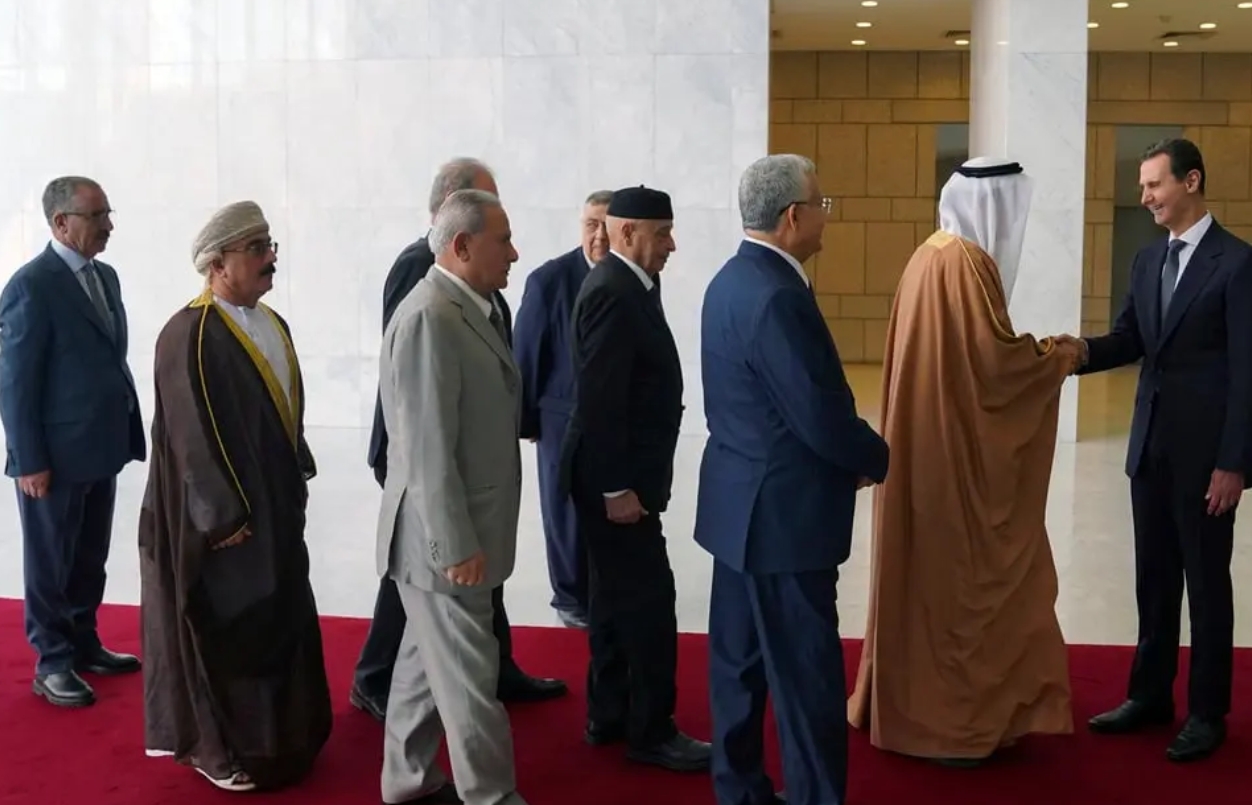Gulf Leaders Expected to Maintain Pragmatic Stance on Syria’s Future Developments
Soyeon Ahn (SNUAC)
As Syrian rebel forces have taken control of Damascus, the long-standing regime of Bashar al-Assad has collapsed, effectively bringing an end to the 13-year Syrian civil war. The Syrian rebels have decided to establish an interim government, which will operate until March next year, and have appointed Muhammad al-Bashir, the head of the administrative organization of the leading rebel faction, Hay’at Tahrir al-Sham (HTS), as interim prime minister.
With Syria’s situation rapidly changing, Gulf monarchs are paying close attention. Assad, who was ousted from the Arab League due to mass civilian killings during the civil war, was reinstated at the Arab League Summit in 2023 with strong support from Saudi Arabia and the UAE. This reinstatement was seen as part of Gulf states’ strategy to reduce Iranian influence in Syria. The Gulf countries, following a pragmatic approach, had chosen to readmit Assad despite his controversial past.
This pragmatic stance by the Gulf states continues even after the fall of the Assad regime. On December 14, the foreign ministers of Saudi Arabia, the UAE, Qatar, and Bahrain held a meeting in Jordan with representatives from other Arab countries, including Iraq, Lebanon, and Egypt. Following the talks, they issued a joint statement expressing support for a peaceful and inclusive transfer of power in Syria through national dialogue and pledged support for the Syrian people. They also condemned Israel’s attacks on Syrian territory.
Currently, Gulf monarchs are analyzing the potential impact of the developments in Syria on their own nations. There are concerns that the fall of Assad’s regime at the hands of the rebels could spark a second wave of anti-government protests similar to the Arab Spring. Additionally, they are worried about political instability, such as the emergence of another civil war during the transition of power, which could destabilize the region. Most notably, there are apprehensions regarding the revival of Islamist movements, given that the rebel leadership is rooted in Islamist ideologies.
At the same time, there is cautious optimism that if stability is achieved in Syria, it could lead to a reduction in Iran’s regional influence and pave the way for a new regional order centered around Sunni Gulf monarchies. This duality of concerns and expectations highlights the Gulf states’ pragmatic approach to the unfolding situation in Syria.
걸프 국가 지도자들, 시리아 향후 정세에 있어 실용주의적 입장 유지 전망
안소연 (아시아연구소)
시리아 반군 세력이 시리아 수도 다마스쿠스를 장악함에 따라 시리아를 장기 집권해왔던 바샤르 아사드 정권이 무너지고 13년 간 지속되었던 시리아 내전이 일단락되었다. 그리고 시리아 반군은 과도정부를 구축하여 내년 3월까지 운영하기로 결정하였으며 임시 총리로 반군의 주도 세력인 하야트 타흐리르 알샴(HTS)의 행정 조직 수반으로 활동해온 무함마드 알바시르를 추대하였다.
시리아 정세가 급격하게 변화하면서 걸프 왕정 지도자들은 이에 촉각을 곤두서고 있다. 시리아 내전에서 무고한 민간인 학살에 대한 규탄을 받으며 아랍연맹에서 축출되었던 시리아 아사드 대통령은 2023년 사우디와 UAE의 적극적인 지지로 아랍연맹 정상회담에 복귀할 수 있었다. 아사드 대통령의 복귀는 시리아에 대한 이란의 영향력을 축소하고자 했던 걸프 국가들의 의도가 깔려있던 것으로 평가되었다. 걸프 국가들은 실용주의적 기조에 따라서 아사드 대통령을 다시 받아들인 것이다.
이러한 걸프 국가들의 실용주의적 분위기는 아사드 정권 몰락 이후에도 나타나고 있다. 12월 14일 사우디아라비아, UAE, 카타르, 바레인 외무장관들은 요르단에서 이라크, 레바논, 이집트 등 아랍 국가 대표들과 회담을 진행한 뒤 공동성명을 통해 시리아와의 국가 대화를 통한 평화적이고 포용적인 정권 이양에 대한 지지 의사를 밝혔으며 시리아 국민들을 위한 지원 의사를 표명하였다. 또한, 이스라엘의 시리아 영토 공격에 대한 비난도 함께 제기하였다.
현재 걸프 왕정 지도자들은 시리아 상황 전개가 자국에 미칠 파급효과를 다각도로 분석하고 있다. 먼저 걸프 왕정 국가들은 반군에 의한 아사드 정권의 몰락이 자칫하면 제 2의 아랍의 봄 반정부 시위 확산으로 이어지지 않을까 우려하고 있다. 또한, 정권 이양 과정에서 또 다른 내전 발생과 같은 정치적 혼란으로 인한 역내 정세 불안 가능성도 함께 우려하고 있다. 무엇보다도 현재 반군 주도 세력이 이슬람주의에 기반하고 있다는 점에서 이슬람주의의 부활에 대한 우려도 큰 것으로 분석된다. 하지만 동시에 시리아 정세가 안정화될 경우 역내 이란의 영향력을 축소하고 수니파 걸프 왕정 중심의 새로운 역내 질서를 구축할 수 있을 거라는 기대도 동시에 존재하는 것으로 알려졌다.

